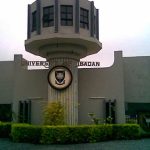...To get all news updates, Join our WhatsApp Group (Click Here)
Also Join our WhatsApp Channel (Click Here)
A Nigerian woman named Favour Igiebor, who tore up her husband’s passport at the Murtala Muhammed International Airport, could face a jail term as punishment for her actions if found guilty, according to the Nigeria Immigration Service Act of 2015 (as amended).
The NIS had on Monday revealed that it had launched an investigation into the circumstances surrounding the destruction of a man’s passport by his wife, identified as Favour Igiebor, stating that she had been summoned for questioning.
In a statement, the spokesperson for the NIS, Kenneth Udo, described Igiebor’s action as a violation of Nigerian law.
The investigation was prompted by a viral video showing Igiebor destroying a Nigerian Standard Passport, reportedly belonging to her husband, at the Murtala Mohammed International Airport in Lagos.
The NIS statement partly read, “The Nigeria Immigration Service has launched a formal investigation following the circulation of a video on social media showing a female traveller destroying a Nigerian Standard Passport at the Murtala Muhammed International Airport, Lagos.
“The Nigeria Immigration Service remains steadfast in its commitment to upholding the provisions of the Immigration Act in the interest of national security and to preserving the dignity and integrity of the nation’s legal instruments.”
Amid the widespread condemnation of her action, Igiebor, in another viral video seen by our correspondent, explained that her action was due to the stress her husband had put her through.
She said, “You have to ask what happened; don’t just look at the action alone. I am not a mad woman who would just come and act like that. I have my reasons; I have gone through many things.
“When it gets to your neck, you have to act. I didn’t want to make him go through a lot of stress; that’s why I waited till we got to Nigeria to do it rather than in Europe, where I could have done it. Don’t make comments without knowing what happened. I have gone through a lot of family issues here and there.”
In response to his wife’s recent video, the man who didn’t disclose his name, said he chose to remain silent because he believed the issue could be resolved “as a family.”
“My wife has posted something this morning. I don’t want to say anything, but I will leave you to watch the video. It is on various social media sites. I have the full clips.
“She didn’t know that I had someone with my phone because my friend and I came down here to do some things. I will post the full clip. I never expected that she would come out and say what she said. These are some things that we can resolve as a family,” he said.
However, findings by PUNCH Metro indicate that according to Section 49 of the NIS 2015 Act (as amended), a person found guilty of changing or altering a passport may face imprisonment or a fine. However, there is no section for punishment in case of destruction in the act.
The section reads, “A person who alters or assists another in altering a travel document, or who produces or reproduces or assists in the production or reproduction of any travel document without lawful authority commits an offence under Section 59 of the Act and is liable on-conviction to a- term of five years imprisonment or to a fine of one million naira or both.”
In an interview with our correspondent on Monday, a human rights lawyer, Collins Aigbogun, stated that there is no section of the Act that explicitly outlines sanctions for passport destruction, emphasising that Section 49 of the Act only specifies punishment for alteration.
He, however, noted that the wife had violated her husband’s constitutional right to freedom of movement.
“A passport is essential for cross-border travel. Possessing a Nigerian passport is not a privilege but a fundamental aspect of the right to freedom of movement.
“When someone destroys a passport, it infringes on the ancillary right to freedom of movement granted to her husband by the constitution. In essence, she has put that right on hold,” he said.
You can get every of our news as soon as they drop on WhatsApp ...To get all news updates, Join our WhatsApp Group (Click Here)
Also Join our WhatsApp Channel (Click Here)












